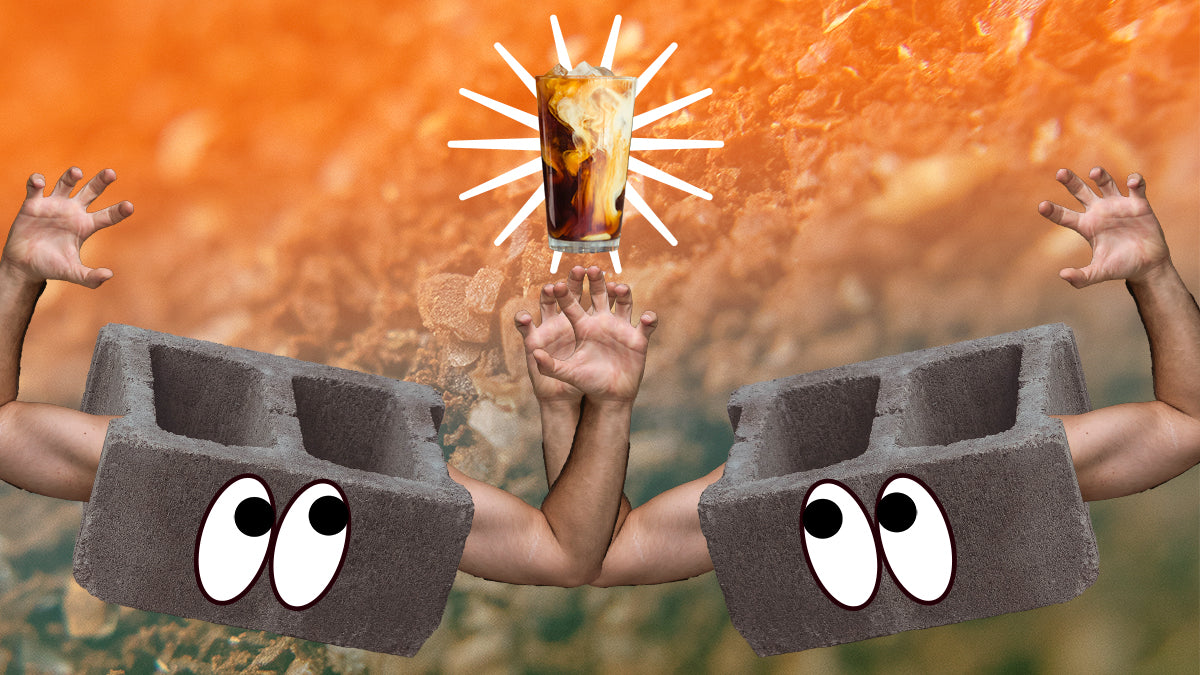Plant Milks Ghost Dairy, Coffee Strengthens Concrete, and Sri Lankan Coffee

-
Plant milks take centre stage in the coffee sector - but what happened to dairy?
By Jordan Montgomery for Coffee Intelligence“The plant milk sector has undergone a substantial amount of investment in recent years. As such, it is understandable that it is perceived as 'overshadowing' dairy. The coffee sector has certainly played a role here. In the early days, major plant milk brands targeted coffee shops to establish their product as the best alternative to dairy. These efforts have contributed to dramatic changes in consumer habits. Recent surveys show that 60% of consumers have tried plant milks in coffee shops, and the New York Times reports that in 2022, Generation Z bought 20% less dairy milk than the national average.”
continue reading -
Does drinking from a wine glass change the flavour of specialty coffee?
By Thomas Wensma for Perfect Daily Grind“Most specialty coffee shops serve drinks in ceramic cups or wide-mouth, thick-rimmed glasses. With wine, however, most sommeliers or bartenders use stemware glasses which consist of three parts: the bowl, stem, and foot. According to world-renowned sommelier Aldo Sohm, the type and shape of a wine glass has a huge impact on sensory perception. In his book Wine Simple, Sohm explains that a well-designed wine glass helps concentrate the aromas which are specific to a certain type of wine. This means the aromatic compounds 'hit' your nose and tongue in the right way, which helps to elevate the flavours.”
continue reading -
Study: Coffee Grounds Can Make Concrete 30% Stronger
By Daily Coffee News Staff for Roast Magazine“A group of Australian engineers have devised a method to make concrete 30% stronger by adding spent coffee grounds that might otherwise be destined for landfills. For the research project, a team at the Royal Melbourne Institute of Technology (RMIT University) turned to pyrolysis, a process that involves heating organic waste in the absence of oxygen. Spent coffee grounds were converted to biochar through a low-energy, oxygen-free environment at 350°C (662°F), then added to concrete mixtures. The team found that the biochar additive actually strengthened the concrete.”
continue reading -
Could Sri Lanka produce more specialty coffee in the future?
By Bhavi Patel for Perfect Daily Grind“Sri Lanka, formerly known as Ceylon, is an island nation in South Asia situated off the southern tip of India. As far back as the late 1800s, Sri Lanka was a prominent producer of coffee. In fact, it was one of the biggest coffee-growing countries in the world during the 1860s. Sadly, however, production volumes began to decline shortly after for a number of reasons. Today, although the country is not widely recognised for its coffee, its unique tropical climate is well suited for coffee production. Moreover, as a result of climate change, coffee cultivation is becoming more widespread in Sri Lanka.”
continue reading

Leave a comment